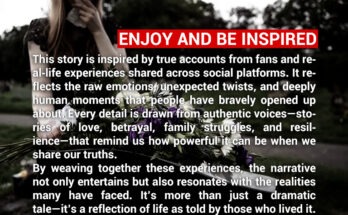When my friend launched her online fitness classes, I was genuinely proud of her. She’d worked hard, built a following, and was finally doing something she loved. Naturally, she invited me to join. I hesitated—I’m not into group workouts, and I prefer my own routine. I thanked her and declined politely. But she didn’t take it well. Her tone shifted, and she stopped texting as often. I didn’t expect my refusal to feel like betrayal. I wasn’t rejecting her—I was just choosing what worked for me. But somehow, she made it about loyalty, not preference.
I tried to explain. I told her I supported her, shared her posts, even recommended her classes to others. But she kept saying, “If you were really my friend, you’d show up.” I felt cornered. Friendship shouldn’t be conditional. I wasn’t asking her to change for me—why did she expect me to change for her? It hurt. I wanted to celebrate her success, not be guilted into participation. Her reaction made me question whether our bond was built on mutual respect or silent expectations.
Weeks passed, and the distance grew. She posted cryptic messages online about “fake friends” and “unsupportive people.” I knew they were about me. I felt sad, but also frustrated. I hadn’t done anything wrong. I’d simply said no. I started wondering how many times I’d said yes just to keep the peace. This time, I chose honesty. And it cost me a friendship—or at least the version of it that couldn’t survive boundaries. I missed her, but I didn’t miss the pressure.
Eventually, she reached out. She said she’d felt hurt and misunderstood. I listened. I told her I never meant to dismiss her work—I just needed space to choose my own path. She admitted she’d tied her self-worth to who showed up. We talked, really talked, for the first time in months. It wasn’t perfect, but it was honest. We agreed to rebuild—slowly, with clearer expectations. I didn’t promise to join her classes. But I promised to keep cheering her on, in my own way.
Now, our friendship feels different—less performative, more real. We’ve learned that support doesn’t always look like participation. Sometimes, it’s sharing a post, sending encouragement, or simply respecting someone’s choice. I still don’t do her workouts, and she’s okay with that. We’ve found a middle ground where both of us feel seen. And that’s more valuable than any class attendance. Saying no didn’t end our friendship—it reshaped it.
So yes, I refused my friend’s classes. And yes, she took it personally. But through the tension, we found truth. Because real friendship isn’t about saying yes—it’s about being honest, and still being loved.


